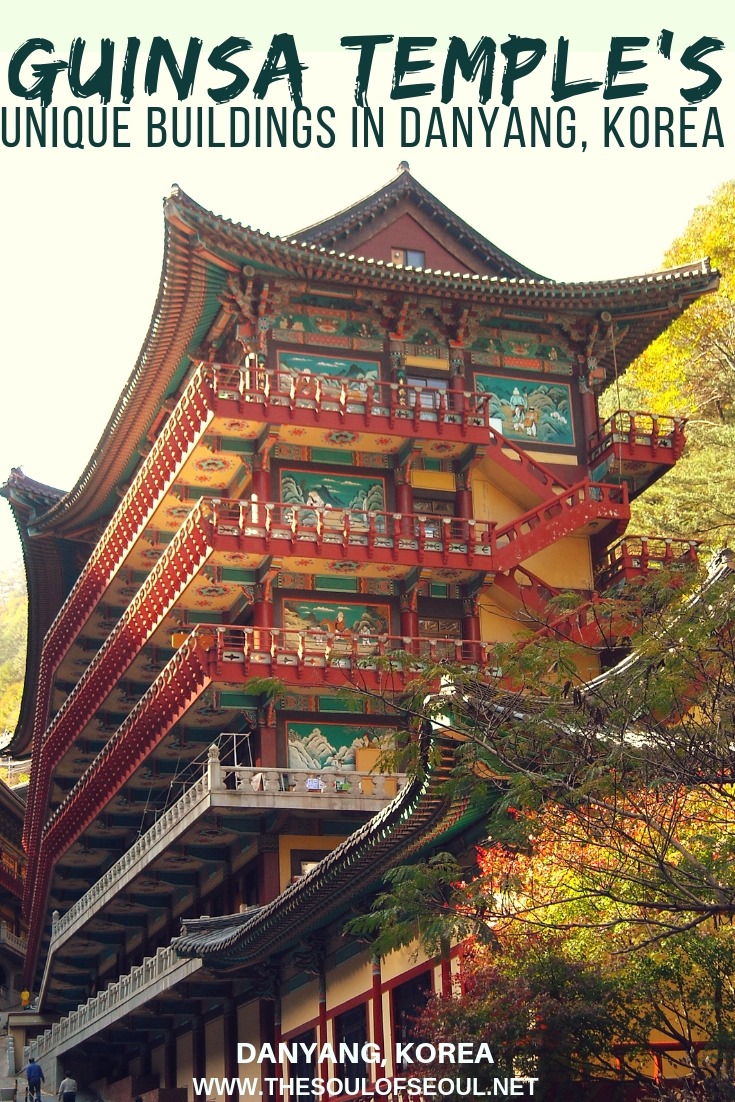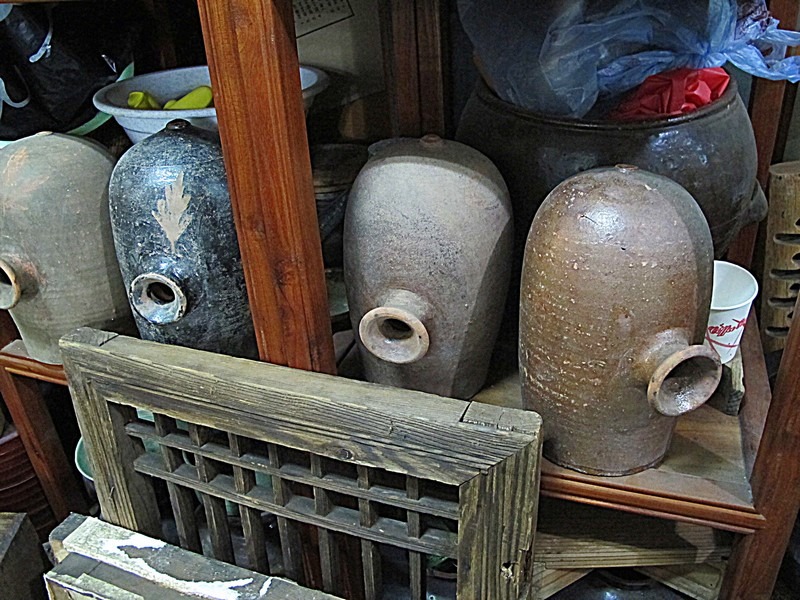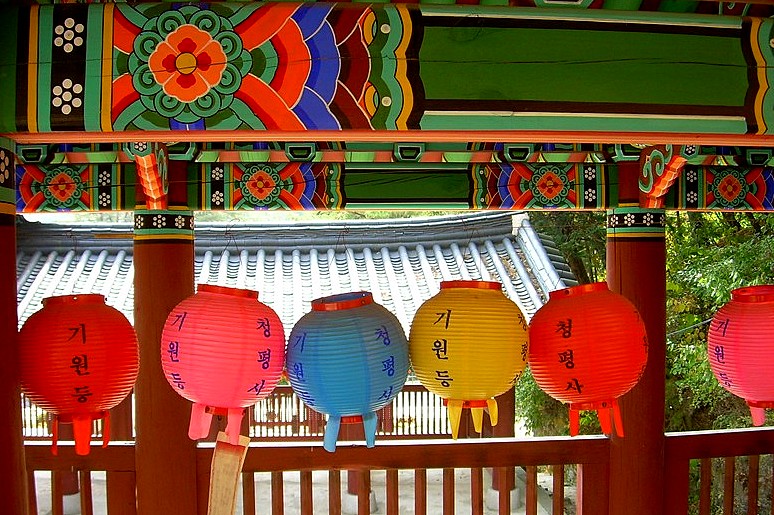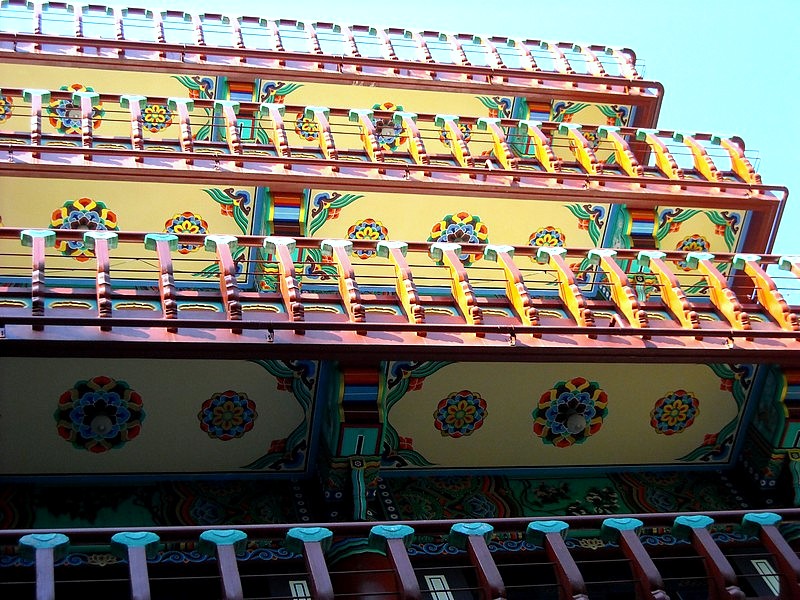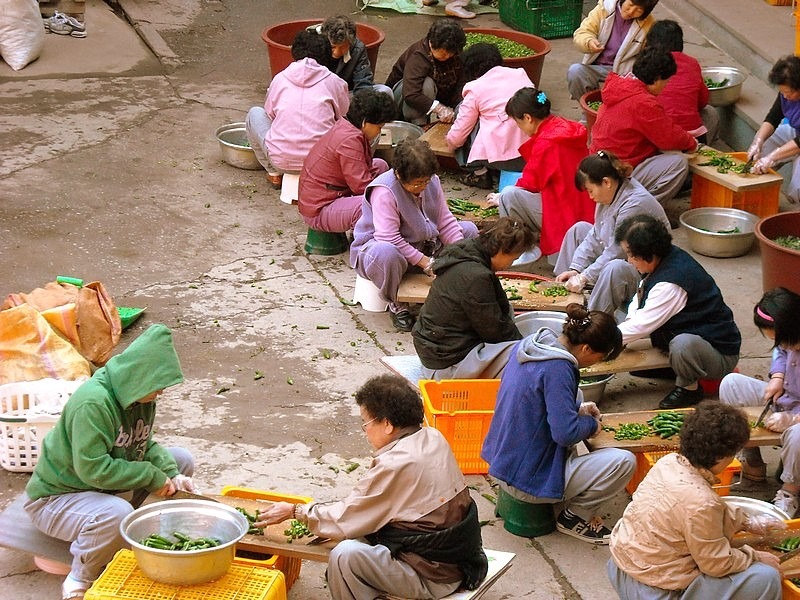Guinsa Temple’s Unique Buildings in Danyang, Korea
There are Buddhist temples across the country of Korea and Guinsa Temple (구인사) in Danyang is definitely one of the most beautiful to see in person. Guinsa Temple is one of the most unique temples in Korea as it towers above visitors walking up the mountain paths to see it. And, if you’re one of those people that says, “if you’ve seen one, you’ve seen them all,” you are most definitely wrong.
Go to this beautiful temple in Korea, see it from bottom to top and back down again and if you have the time, join their temple stay program and learn about Korean Buddhism and culture.
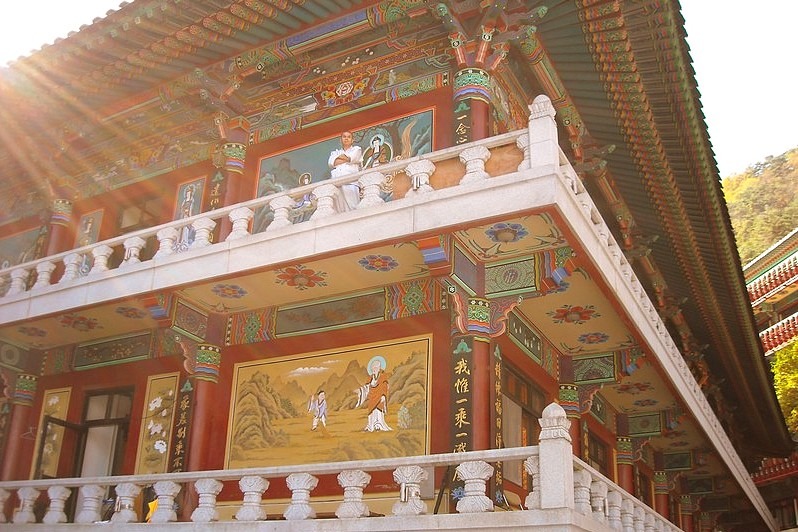
Plan your trip to Guinsa Temple:
- How To Get To Guinsa Temple
- Stay For The Weekend!
- History Of Guinsa Temple & Cheontae Buddhism
- What To See At Guinsa Temple
- Eat At Guinsa Temple
- Templestay Experience
(This post contains affiliate links, which means I receive a certain percentage of a sale if you purchase after clicking. These funds go to maintain the site. Thank you for your support.)
How To Get To Guinsa Temple
Address: 132-1 Baekja-ri Yungchoon-myeon Danyang-gun Chungcheongbuk-do (충천북도 단양군 영춘면 백자리 132-1)
By Train From Seoul: Take the ITX Train from Cheongnyangli Train Station to Danyang Station. There are two trains that make the trip: the Mugunghwa Train which runs every hour or two and takes about three hours and 15 minutes in total. There are also two Saemaeul Trains that are a bit faster and take two hours and 45 minutes. Walk straight out of the station to find the bus stop and take the bus headed to Guinsa Temple.
By Intercity Bus From Seoul: From Seoul Express Terminal, take a bus to Yeongwul Bus Terminal. Exit the terminal and turn left and then turn right on the first street and walk to the first bus stop. From bus stop 59169 and get on the bus headed for Guinsa. The trip will take about 45 minutes.
Buses will drop you off at the foot of a mountain. The walk up to the temple is a bit more like a hike so be prepared. To truly see the temple requires a rather continuous hike so be prepared as it can seem quite daunting at times. The views all the way up are spectacular and worth it though so put on those hiking shoes, bring a camera and be prepared to huff and puff and stand in awe. Most temples require a hike to them, but then the temple itself is all at one elevation. This is one unique aspect of this grandiose temple.
Join a Klook tour that will provide transportation from Seoul down to Guinsa Temple and some other awesome spots in the Danyang area.
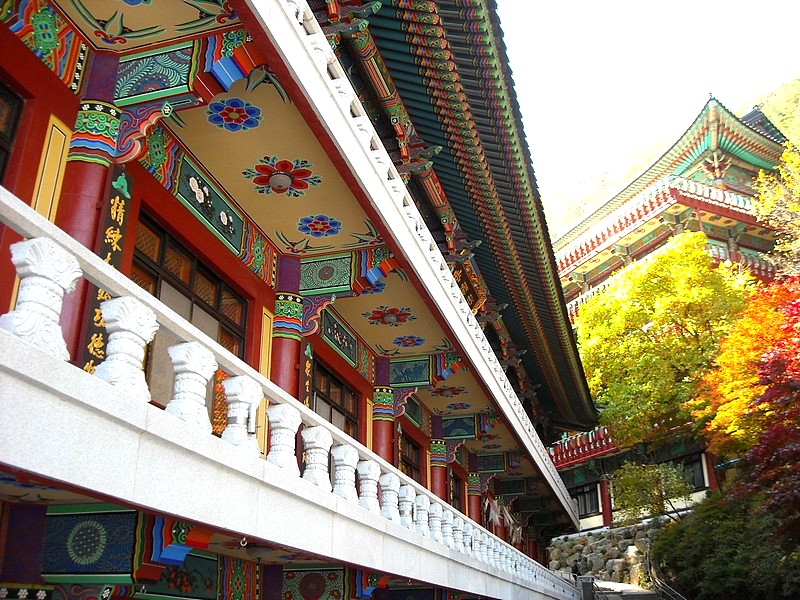
Stay For The Weekend!
There is plenty to do over the course of a weekend in the Danyang area. Find a place to stay and do it all! Make sure to check out my guide to Danyang for more ideas on what to do while you’re in the area.
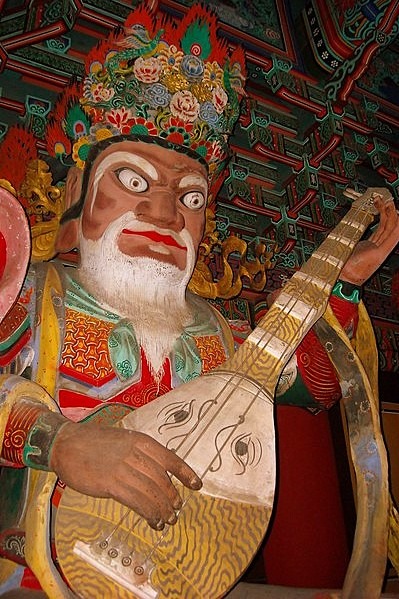
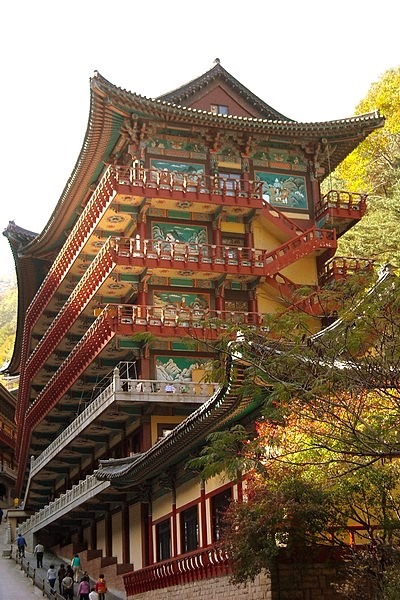
History Of Guinsa Temple & Cheontae Buddhism
Guinsa (구인사) is the headquarters of the Cheontae school of Buddhism. Cheontae is the Korean version of China’s Tiantai teachings which were brought to Korea and firmly established during the time of Uicheon, a Korean Buddhist monk who was the son of Emperor Munjong of Goryeo, between 1055 and 1101. Cheontae Budddhism had a major impact on Goryeo Buddhism, but then lost popularity and disappeared for some time in Korea. Re-established in 1945 by Sangwol Wongak, Cheontae Buddhism now has about two million followers in Korea.
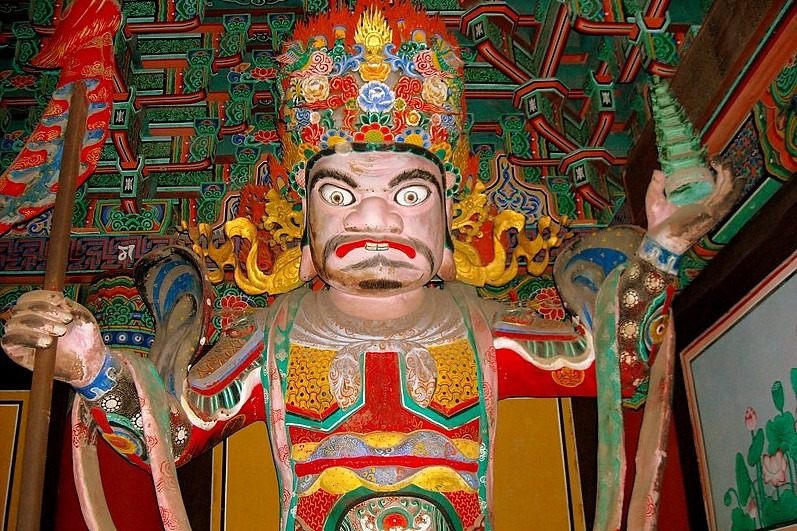
The Cheontae Doctrine holds the Lotus Sutra of Buddhists teachings in highest esteem. They believe that all things are empty and without essential reality, that all things have a provisional reality, and that all things are absolutely unreal and provisionally real both at once. This suits the area quite well that is named “Yeonhwaji Peak” which translates to ‘Lotus Flower Area’. The charm of the area has led to its reputation as a holy place for Mahayana Buddhism.
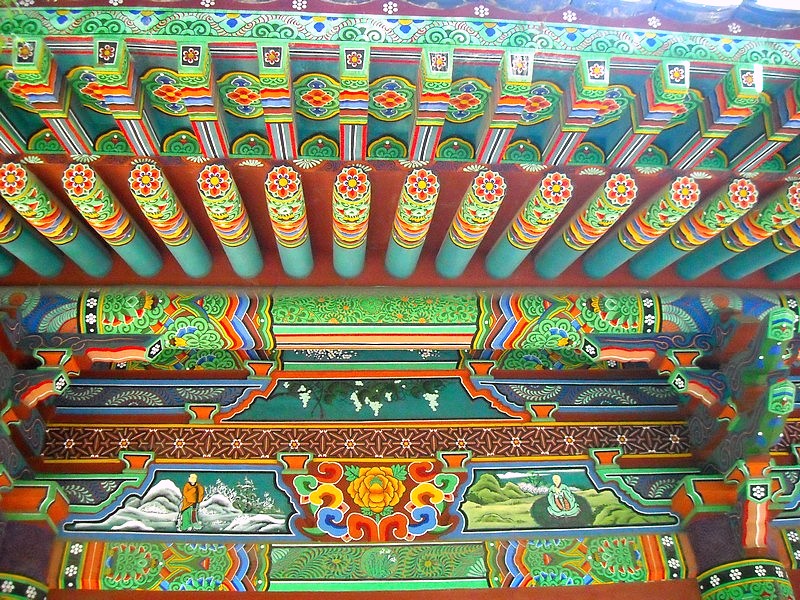
One of the most interesting parts of this temple, aside from the way it is built going up up up into the mountains rather than all at the same height and platform, are the rather horrific paintings. Most temples in Korea that I’ve been to seem to showcase calming artistic works. While they may have a hidden truth or explain some gruesome reality, they never look it, however at Guinsa, the paintings hid nothing.
What To See At Guinsa Temple
The original buildings on the grounds of Guinsa Temple today were burnt down during the Korean war and were rebuilt in 1966. The temple complex tucked into the Sobaek Mountains has been expanding ever since. This large temple complex is rather bright and shiny compared to some of the older temples you can visit in Korea.
Today, there are over 50 buildings to walk around. To me, the most unique aspect of this temple is the fact that the buildings stand three and four even six stories tall while most temples in Korea are only one or two stories. If you are interested in unique temples in Korea, of which there are many, check out this compilation post I put together with some other awesome bloggers in Korea that features Stunning Temples In Korea You Have To See To Believe.
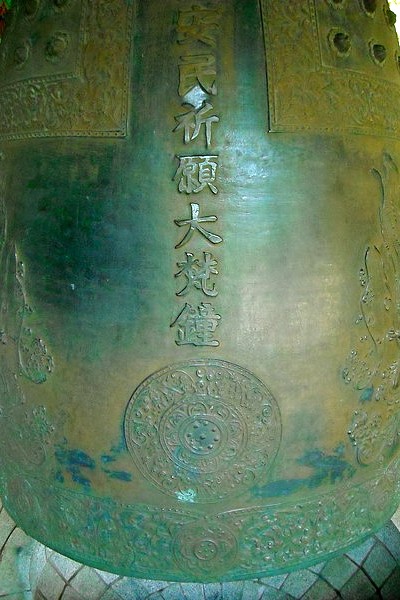
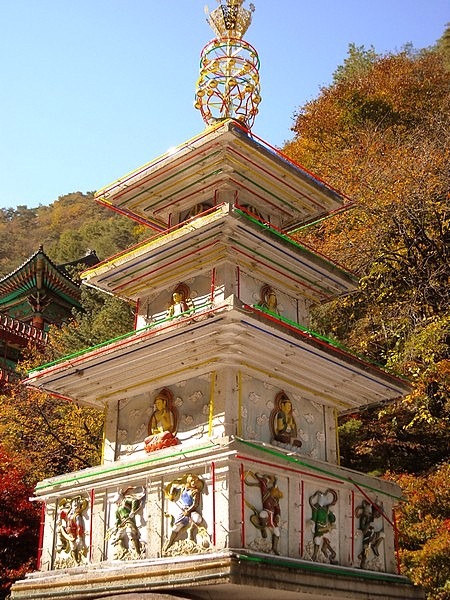
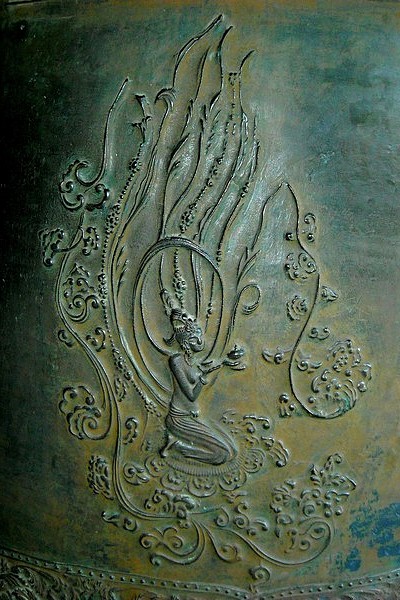
The first building to go through is the Four Heavenly Kings Gate. Once inside, there are impressively decorated buildings all over the place and visitors are welcome to go in most of them. There is signage posted clearly stating which buildings are only for the monks that reside on the premises. There is the Storehouse Hall, 5-Story Law Hall, Cafeteria Hall and the Great Teacher Hall a memorial to Sangwol Wongak, among many more.
The temples in Korea can seem monotonous at times to the untrained eye with the same basic color scheme, architecture and symbols. I don’t find them monotonous at all, BUT if you’re starting to feel that way, then definitely visit Guinsa Temple to change your mind. This temple truly stands out with its sheer height and this is NOT the only thing to see in the Danyang area that is beautiful.
Eat At Guinsa Temple
The cafeteria offers up three free meals a day: lunch starts at 11:30am and ends at 1;30pm. The meals are simple and include rice, kimchi, and soup which is all made in house. Visitors are welcome to help in the upkeep of the temple by washing dishes, hoeing rice fields or preparing kimchi, as many of the women were doing the day we were there. When we visited, there was no information about volunteering, where to go, or what to do available in English but it’s easy enough to follow along.
If you miss meal time IN the temple, there are some local restaurants near the parking lot of the complex that do well to replenish after a good hike into Guinsa Temple.

Templestay Experience
While we didn’t have time for this, Guinsa Temple does offer a templestay experience which you can book here. If you’re not sure what a templestay includes, check out this post after I did one at a beautiful temple in Seoul. It was a great experience and I highly recommend it to learn more about Korean Buddhism and culture and of course to meditate in beautiful surroundings.
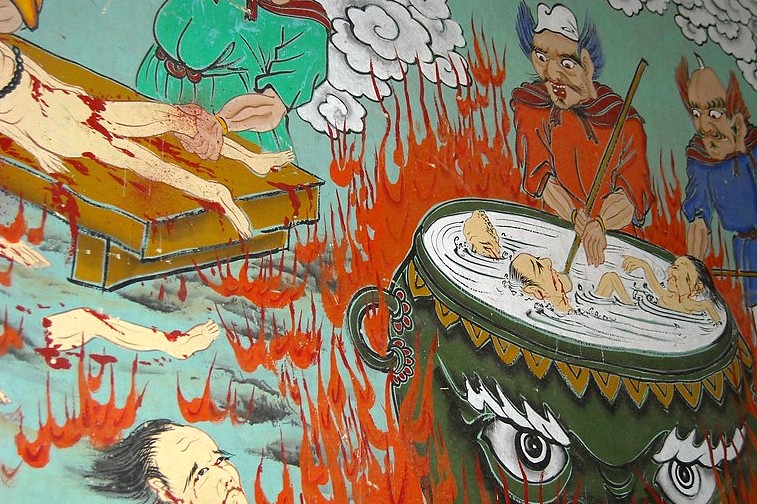
Did you like this post? Pin It!
